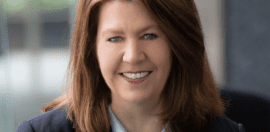‘It's really come out of nowhere’: Charities dismayed by changes to political campaigners bill

23 November 2021 at 5:07 pm
Advocates believe the amendments need more scrutiny and consideration
Charities have been blindsided by new amendments to the federal government’s political campaigners bill, with sector leaders fearful the changes will pose major challenges for community groups.
The government introduced a bill in August to lower the expenditure threshold for political campaigners from $500,000 to $100,000 during the financial year, or for any of the three previous years.
This means any organisation spending more than this amount to influence voters in an election will need to to register as political campaigners, and be subject to extra reporting requirements and restrictions.
Charity leaders have previously spoken out against the bill, arguing the new requirements would be onerous and stifle the voices of community groups.
But the sector’s concerns have further grown this week after the federal government put forward amendments to the bill on Monday, without consulting charities.
The Hands Off Our Charities (HOOC) alliance believes the changes are very significant in scope, and create almost an entirely new bill.
HOOC coordinator Ray Yoshida told Pro Bono News the amendments change the definition of “electoral expenditure” for political campaigners to include any money spent “in relation to an election”.
“That’s really broad, very vague, and it’s going to be a huge challenge for charities to be able to identify what actually fits into that category,” Yoshida said.
“But what that also means is that once charities hit that expenditure threshold of $100,000, they will then have to disclose a much greater amount of expenditure and in effect, will be locked into that category of political campaigner.
“And that’s because such a large proportion of their expenditure might be considered somewhat relevant to an election.”
The amendments impose retrospective disclosure obligations, meaning if organisations have to register as a political campaigner or associated entity in one year, they have to report on expenditure for the year prior.
Yoshida said this means organisations that spent over $100,000 in the 2018-19 financial year on electoral matters would now be classified as political campaigners.
He noted these amendments were made with no warning whatsoever.
“The government tried to justify the original bill as being based on a recommendation from the [Joint Standing Committee on Electoral Matters],” he said.
“But this newly amended bill goes so much further than what [the committee] has recommended, and it’s really come out of nowhere.”
The amended bill passed the House of Representatives on Monday, and is soon due to be debated in the Senate.
Charity advocates would like to see the bill sent to a parliamentary committee for proper scrutiny. It is understood Senator Jacqui Lambie, the ALP and Greens are on board for this.
Yoshida said without further scrutiny, the bill would have a significant impact on the charity sector.
“The charities we’ve been speaking with view this as bad policy, and also a very poor process because the changes that the government has introduced are so significant that it’s basically a new bill,” he said.
“It really deserves a lot more scrutiny and consideration.”
The federal government has argued this bill is needed to enhance public confidence in Australia’s political processes by making “political campaigner” groups more transparent, in line with political parties and candidates.
After Labor criticised the bill during debate in the lower house on Monday, Liberal MP Jason Falinski defended the legislation.
“This bill is about simply saying to Australians: ‘This is how those who claim to be charities are actually spending the money you give to them’,” Falinski said.
“[Labor gets] very upset when Clive Palmer spends his own money, but they only get upset with us when we say to some of these charities, ‘Hang on, if you think this is the best way to spend the hard-earned money of the working men and women of Australia who gave you their money in good faith, [you need to] declare it’.”







